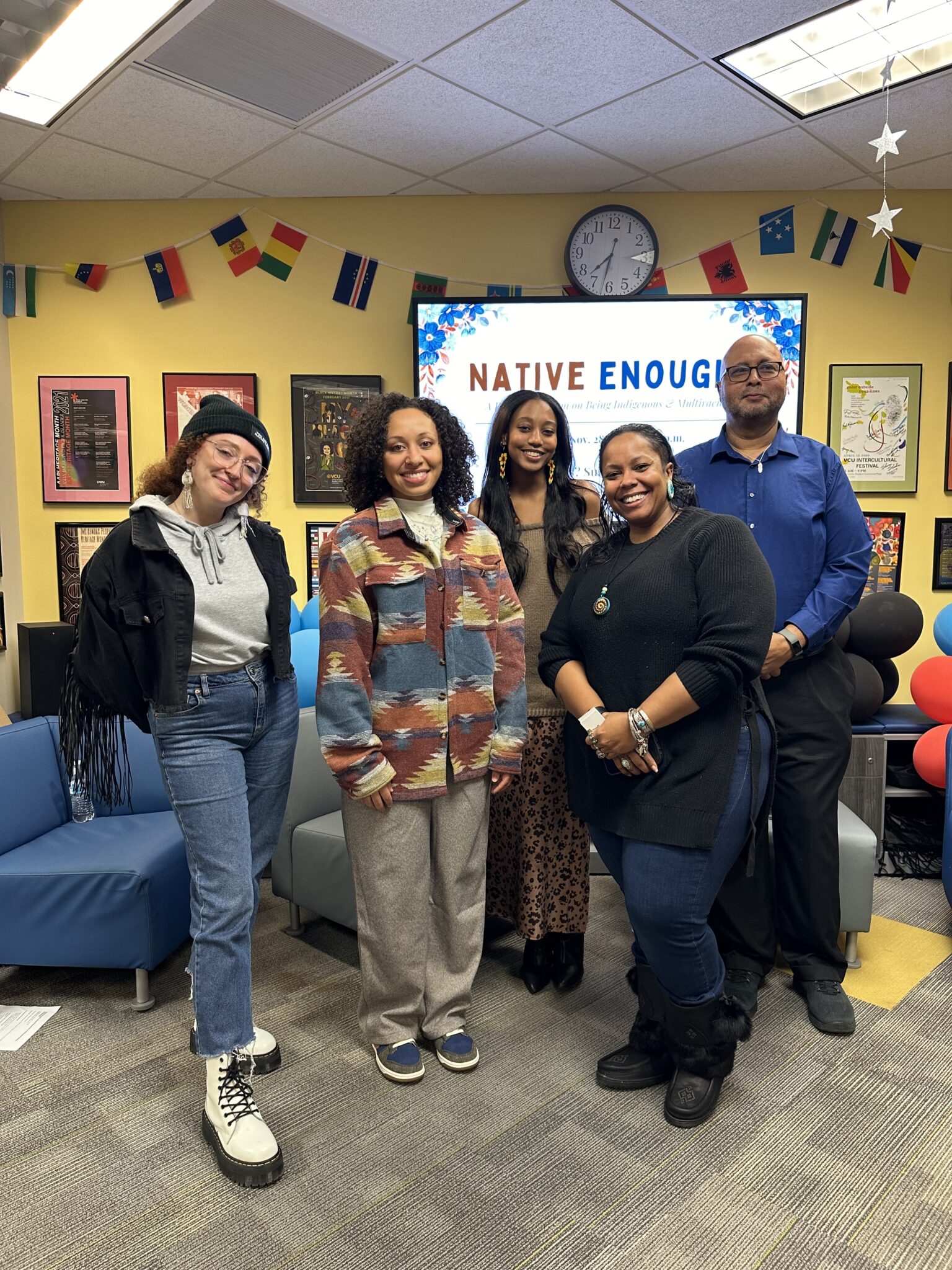Building Trust and Fostering Connections with Indigenous Communities at VCU

Over the past few years, VCU’s Office of Multicultural Student Affairs (OMSA) has dedicated itself to building meaningful relationships with Indigenous communities both internal and external to VCU. This commitment stems from a desire to expose the VCU community to Indigenous histories and ongoing cultural contributions while creating spaces of belonging for Indigenous faculty, staff, and students. The process has required patience, cultural humility, and a deep understanding of the complexities involved in fostering trust between Indigenous and non-Indigenous communities.
One student active in OMSA shared, “OMSA has been a gateway for me, not only in helping me reconnect with my Indigenous culture away from home but also in starting many meaningful connections, friendships, and amazing memories.”
Historically, various factors have hindered the development of trust between Indigenous people and institutions like universities. These factors include the historical oppression of Indigenous peoples, power imbalances, previous harmful experiences with institutions, and differences in social identities such as race, gender, social class, and education.
Director of OMSA, Dr. Myriam Kadeba, noted, “familiarizing ourselves with the history of Native and tribal communities’ relationships with public institutions in VA, as well as identifying barriers and break in trust throughout the years, helped inform what reestablishing relationships and mending them could look like.
To navigate these challenges, OMSA staff employed strategies that emphasized reciprocity, authenticity, and long-term commitment in their relationship-building efforts.A key component of OMSA’s approach has been acknowledging the power differentials between VCU employees and Indigenous community members. To address this, OMSA staff engaged in power balancing by putting themselves in positions of vulnerability. This was accomplished by meeting Indigenous people within their cultural communities, particularly at tribal pow-wows. These pow-wows, hosted by local Virginia tribes such as the Chickahominy, Rappahannock, Mattaponi, Upper Mattaponi, and Cheroenhaka, provided an ideal context for interaction.
Pow-wows are annual events that serve as both social gatherings for Indigenous people and educational opportunities for the broader public. By attending these pow-wows, OMSA staff entered spaces where they were often in the minority, allowing them to experience a different perspective.
“What I remember most from attending pow wows is the warmth and love shared among kins and multiple generations coming together on their ancestral land, a deep respect for cultural traditions that existed long before any of us were here, and an overwhelmingly welcoming feeling,” Kadeba shared.
Since the fall of 2022, OMSA staff have attended at least six pow-wows, consistently engaging with Indigenous communities and expanding their network of Indigenous collaborators. These interactions have not only helped to build trust but also increased OMSA’s cultural knowledge and humility. Furthermore, the relationships developed through these efforts have led to increased contact with Indigenous students at VCU, who may feel more represented and connected to the university through OMSA’s Indigenous-focused programs.
OMSA’s long-term commitment to these relationships has been a cornerstone of their approach. The staff has communicated this commitment to their Indigenous community partners, emphasizing that their efforts are not a one-time initiative but an ongoing project. This dedication has resulted in tangible benefits, including an expanding network of Indigenous collaborators, enriched cultural knowledge among OMSA staff, and a growing number of opportunities for the VCU community to learn about Indigenous history, culture, and contemporary issues.
Since fall 2022, OMSA has hosted 17 educational and community-building programs centered around Indigeneity. These programs have provided valuable platforms for Indigenous voices within the university and have facilitated a greater understanding of Indigenous cultures among the broader VCU community.
Looking forward, OMSA plans to continue this vital work, ensuring that Indigenous perspectives remain an integral part of VCU’s cultural landscape. By fostering trust and building lasting relationships, OMSA is helping to create a more inclusive and supportive environment for Indigenous students, faculty, and staff at VCU. The journey is ongoing, but the foundation laid in the past few years promises a future where Indigenous communities feel truly valued and integrated into the fabric of the university.
Categories Annual Report Stories: 2023-24